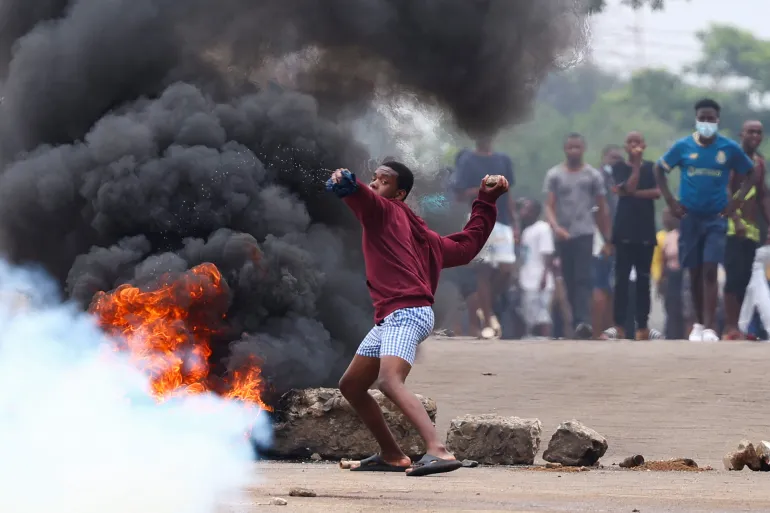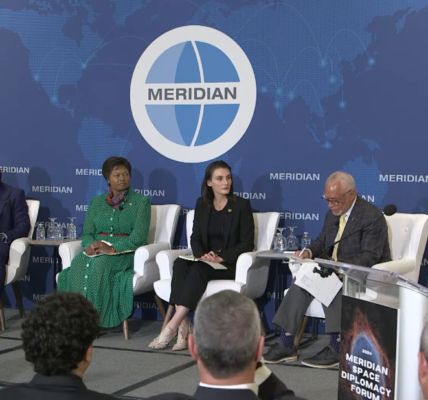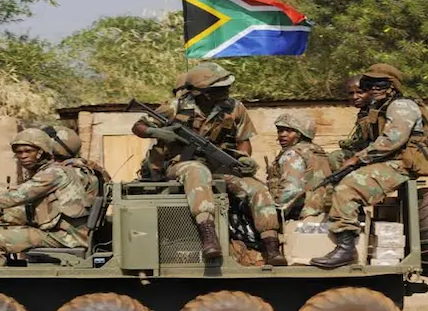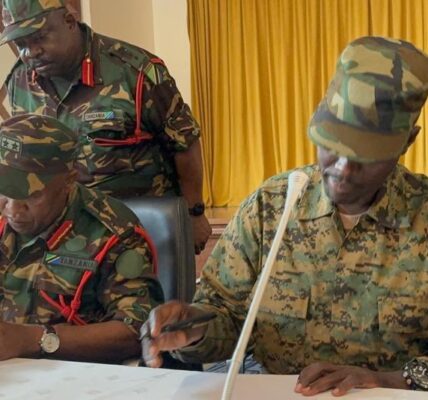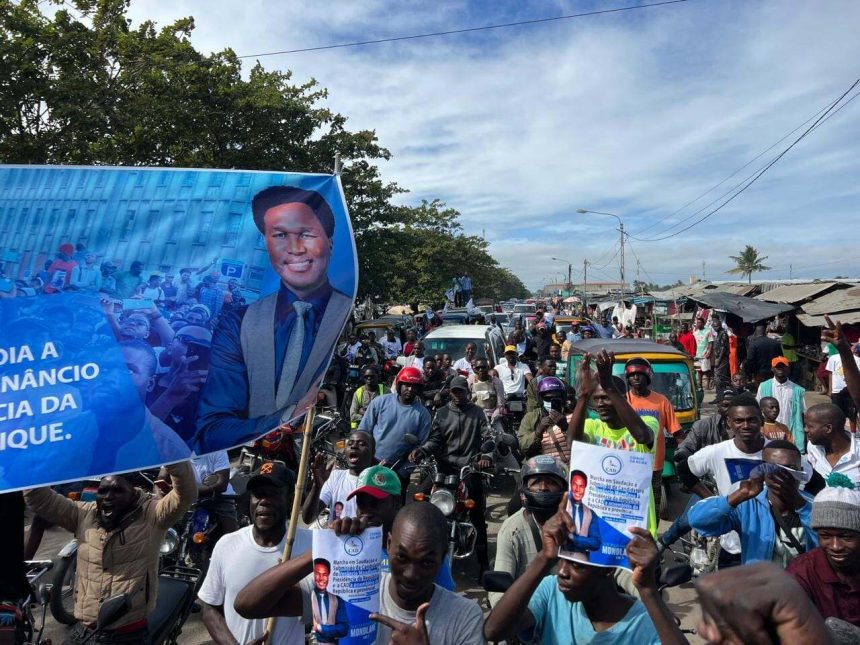
Mozambique is bracing for an escalation in unrest following the Constitutional Council’s declaration of Frelimo’s Daniel Chapo as the winner of the country’s contested October election. In a controversial ruling, Chapo was named as the next president, with 65 per cent of the vote, 5 per cent less than was previously announced. The court awarded his main challenger Venâncio Mondlane four more points in the polls, giving him a 24 percent share.
The controversial decision is expected to intensify protests and deepen political divisions. Tertius Jacobs, head analyst for Mozambique and East Africa at the Focus Group told National Security News in an interview that protests targeting infrastructure, particularly the vital Lebombo border post to South Africa, could escalate, potentially disrupting trade and transport routes for months.
Mondlane has issued a call for a nationwide five-day shutdown. In a live broadcast on his Facebook page, Mondlane said the moment was critical in the fight against a corrupt and oppressive regime.
The 9 October election, marred by allegations of fraud, has resulted in violent clashes that have claimed at least 130 lives. Opposition groups allege that the vote was rigged in favour of Chapo. Jacobs anticipates that protests targeting infrastructure, particularly the vital Lebombo border post to South Africa, will continue, potentially disrupting trade and transport routes for months.
Protests and opposition defiance expected to escalate
Mozambique was on edge as it awaited a ruling from the Constitutional Council of Mozambique on the disputed 9 October election. This follows two months of demonstrations and violent encounters between the police and opposition groups, who claim the election was rigged by the Frelimo party, which has ruled Mozambique since independence.
Mondlane, who officially came second, warned supporters on social media of a potential “new popular uprising.” Mondlane is believed to have left Mozambique.
Demonstrators have already begun blocking roads and halting traffic as frustrations mount. Reports from the BBC indicate that protestors are preparing for sustained demonstrations, heightening fears of further violence and economic disruption.
More violence, unrest, but sustainability is in question
Jacobs described the Constitutional Council’s ruling as a pivotal moment, predicting that the unrest is likely to continue. “What we’re expecting is more of what we’ve seen since October—protests, violence, and disruptions. The real question is, how long can this last? Sustainability is the key issue here,” Jacobs explained.
Highlighting the emotional undercurrent of public dissatisfaction, he added, “People are incredibly frustrated, and it’s evident everywhere. The government has underestimated the level of anger.”
South Africa worried about energy and food security with Mozambican chaos
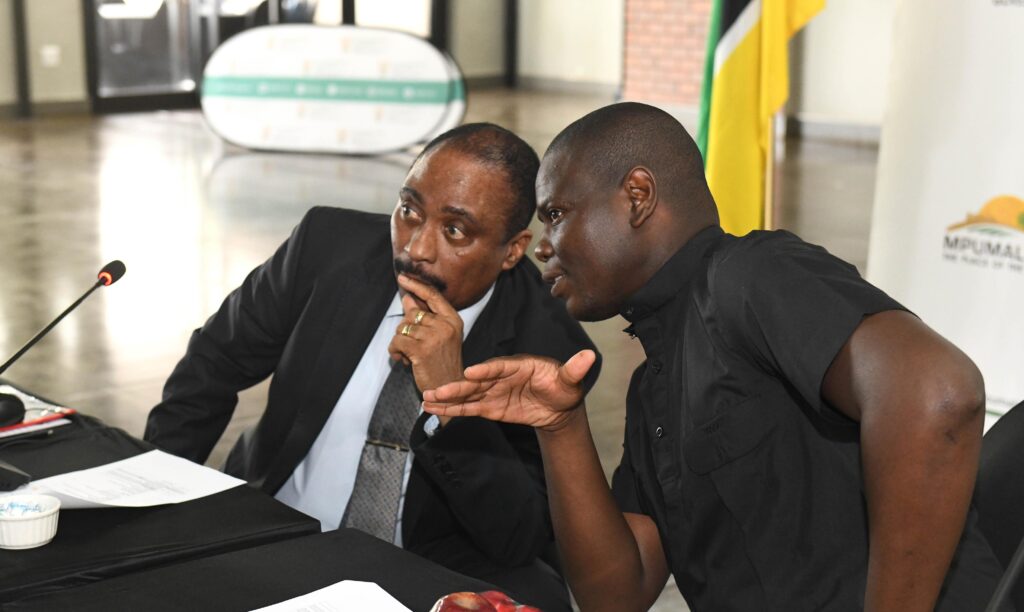
The unrest in Mozambique has sparked fears of broader regional instability, particularly for South Africa, which relies on trade routes through Mozambique for food and energy security. South Africa’s Minister of International Relations and Cooperation, Ronald Lamola, recently led a delegation for bilateral talks with Mozambican officials to address disruptions at the Lebombo and Ressano Garcia border posts.
U.S. intelligence officials also reportedly joined discussions with South African security representatives at a meeting in the Kruger National Park, signalling international concern over Mozambique’s turmoil.
Both governments agreed to strengthen security along key highways linking the two countries, fearing further disruptions could severely impact supply chains. “If the situation persists, the threat to food and energy security will become critical,” Lamola warned.
South Africa leaves opposition parties out of discussions on solutions
Jacobs noted a fundamental flaw in South Africa’s engagements with Mozambican officials, highlighting that they are exclusively talking to Frelimo.
“If South Africa is going to take any kind of mediation role and if you speak to the ruling party, surely you would speak to the opposition as well to get to some kind of middle ground.”
Opposition rejects “handouts”compromise deals
Jacobs emphasised that opposition leaders, including Mondlane and the Podemos party, are unlikely to accept compromise deals. Drawing comparisons to past municipal elections, he said that while RENAMO accepted limited concessions after alleged irregularities, today’s opposition appears unwilling to settle for symbolic victories.
“This isn’t the kind of situation that can be resolved with handouts,” Jacobs said. He stressed that opposition leaders are demanding deeper reforms rather than superficial compromises.
Power-sharing agreement in Mozambique unlikely
Frelimo’s decades-long dominance over Mozambique’s political, economic, and social landscape makes power-sharing “a tall order,” Jacobs argued. ” It would mean ceding a significant degree of power and “lifting the veil on whatever is going on and giving the opposition insight, that can tear Frelimo apart in a subsequent election.”
While Podemos might be open to power-sharing, he said, Mondlane however appears to reject such proposals outright. “It’s not about handouts — they want structural change,” Jacobs added.

